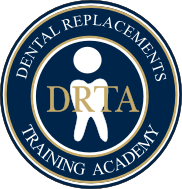Dental clinics rely on dental assistants to play a vital role in ensuring high-quality dental care for patients. Pursuing a career in dental assistant opens up the door to multiple career choices that can be availed through different certifications. In this blog post, we will explore the various types of dental assistant certification in Texas, their contents, and how they can assist you in achieving your career objectives. In Texas, dental assistants have a range of certification options to become qualified and licensed in their profession. Whether you’re a recent graduate or seeking to enhance your skills, we have all the information you need. So, let’s delve into the world of dental assistant certification in Texas and examine it more closely.
Certification for Dental Assistants in Texas
There are three main types of dental assistant certifications as mentioned below. Each type has its own set of requirements and responsibilities, which must be met before becoming eligible for each certification.
Registered Dental Assistant (RDA)
If you aspire to become a Registered Dental Assistant, your first step would be to enroll in an accredited dental assisting program that is approved by the Texas State Board of Dental Examiners. This program usually involves completing coursework that fulfills state criteria and passing written and practical exams conducted by the Texas State Board.Additionally, RDAs must possess basic cardiopulmonary resuscitation (CPR) certification, demonstrate a working knowledge of radiography principles and obtain clinical experience in an approved setting before gaining licensure.
Expanded Functions Dental Assistant (EFDA)
When aiming to obtain their EFDA (Expanded Functions Dental Assistant) license, you must successfully finish an EFDA-approved training program that includes a minimum of 400 hours of theoretical instruction and 600 hours of clinical experience. Additionally, you must pass both the written and clinical exams administered by the Texas State Board of Dental Examiners. It’s crucial to highlight that licensed EFDAs must regularly update their education every two years to maintain their license, as failure to do so may result in a suspension of their license until they complete the required continuing education courses.
Certified Dental Assistant (CDA)
When seeking CDA licensure, it is first necessary to become certified by either the National Association of Certified Dental Assistants (NACDS) or the American Association of Professional Dentists Incorporated’s Certified Chairside Assisting exams (AAPDICA). Candidates may apply directly to one organization if they have obtained educational credentials from an accredited institution; however, individuals already holding other forms of dental assistant licensure may qualify for exemption from testing.
Dental Assistant Licensing:
1. Dental Assistant Registration (DAR):
In Texas, dental assistants can opt for registration, which involves completing specific educational requirements, such as CPR certification and infection control training. DAR is a fundamental license that permits individuals to perform basic supportive dental procedures under the supervision of a licensed dentist.
2. Nitrous Oxide Monitoring Certificate:
Administering nitrous oxide requires a specialized certification in Texas. Dental assistants interested in assisting with this sedation method must complete a TSBDE-approved course and pass an examination to obtain the Nitrous Oxide Monitoring Certificate.
3. Radiology Certification:
Operating dental x-ray equipment necessitates radiology certification. Dental assistants must complete a TSBDE-approved course on radiography and pass an examination to acquire the Radiology Certificate. This certification enables them to take dental x-rays under the direction of a licensed dentist.
Importance of Certification and Licensing:
Acquiring the appropriate certifications and licenses not only meets legal requirements but also validates a dental assistant’s competency and dedication to the profession. It enhances job opportunities, earning potential, and establishes a higher standard of patient care.
Steps to Obtain Certification and Licensing:
Select an Accredited Program: Enroll in a reputable dental assisting program accredited by the Commission on Dental Accreditation (CODA) to gain the necessary education and training.
Complete Required Training: Fulfill the educational requirements stipulated by the chosen certification or licensing body. This includes classroom instruction, hands-on clinical experience, and specific coursework.
Pass Certification Exams: Prepare rigorously for the certification exams required for the chosen credential. Utilize study materials, practice exams, and review courses to ensure success.
Apply for Certification/Licensing: Submit the application along with the required documentation and fees to the relevant regulatory body. Ensure all prerequisites are met before applying.
Continuing Education: Maintain certification by fulfilling continuing education requirements. Stay updated with advancements in the field through seminars, workshops, or additional coursework.
There are certain basic requirements that must be met for one to become a dental assistant in Texas, regardless of which type of certification you choose to pursue. These include the successful completion of background checks and drug screenings. This is a crucial step in obtaining licensure or exemption from testing, as it ensures that dental assistants are of good moral character and ability to perform their duties effectively and safely.
All aspiring dental assistants must carefully consider their options and do their research before starting the certification process. Understanding the requirements and procedures involved in each type of certification will help you make an informed decision and choose the best path to achieve your career goals. It is advisable to enroll in Dental Assistant Schools Dallas for becoming a competent dental assistant and equip yourself with the certifications essential for your career success.
